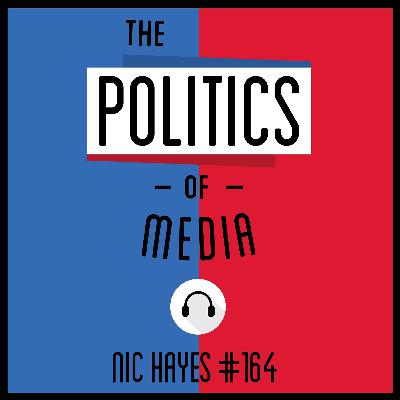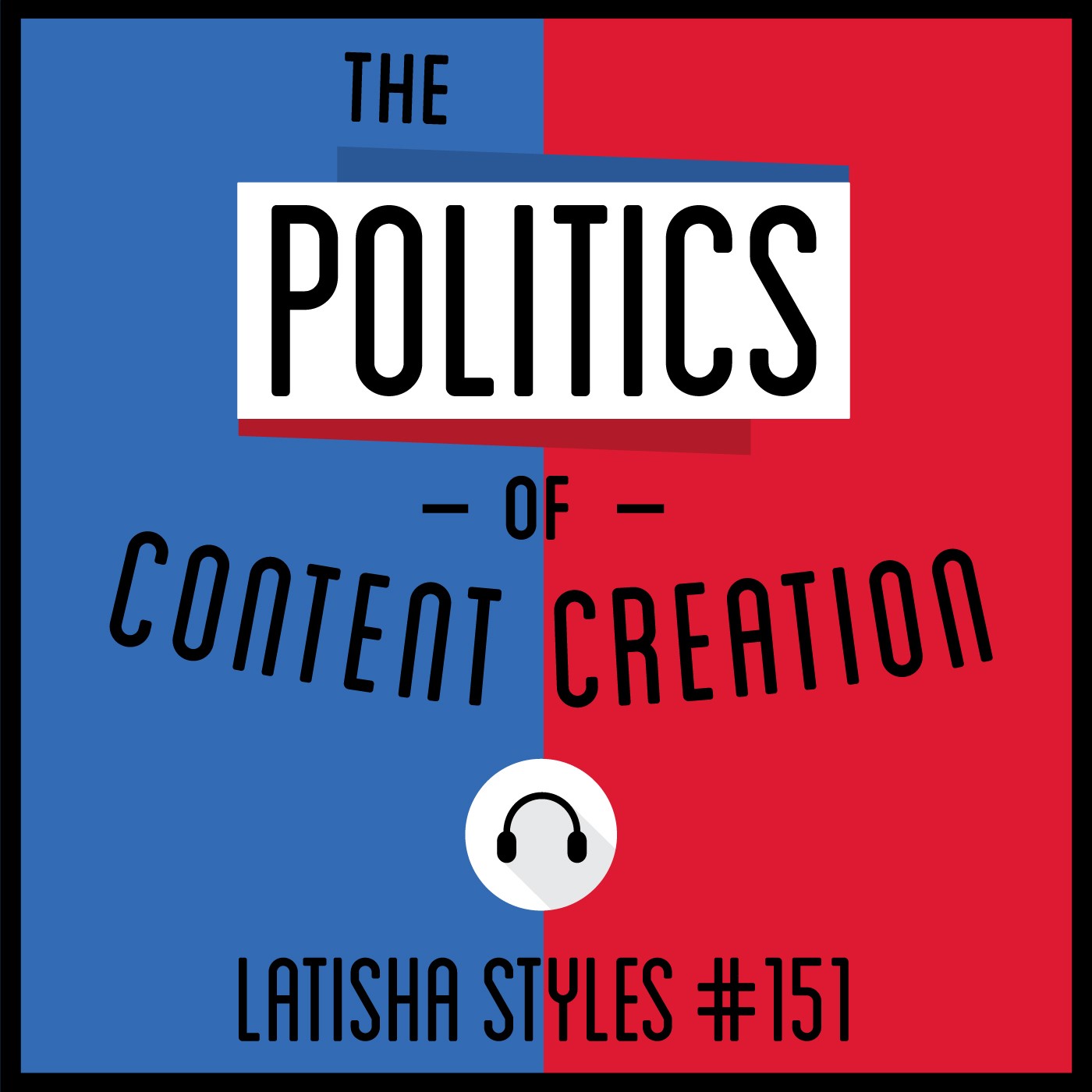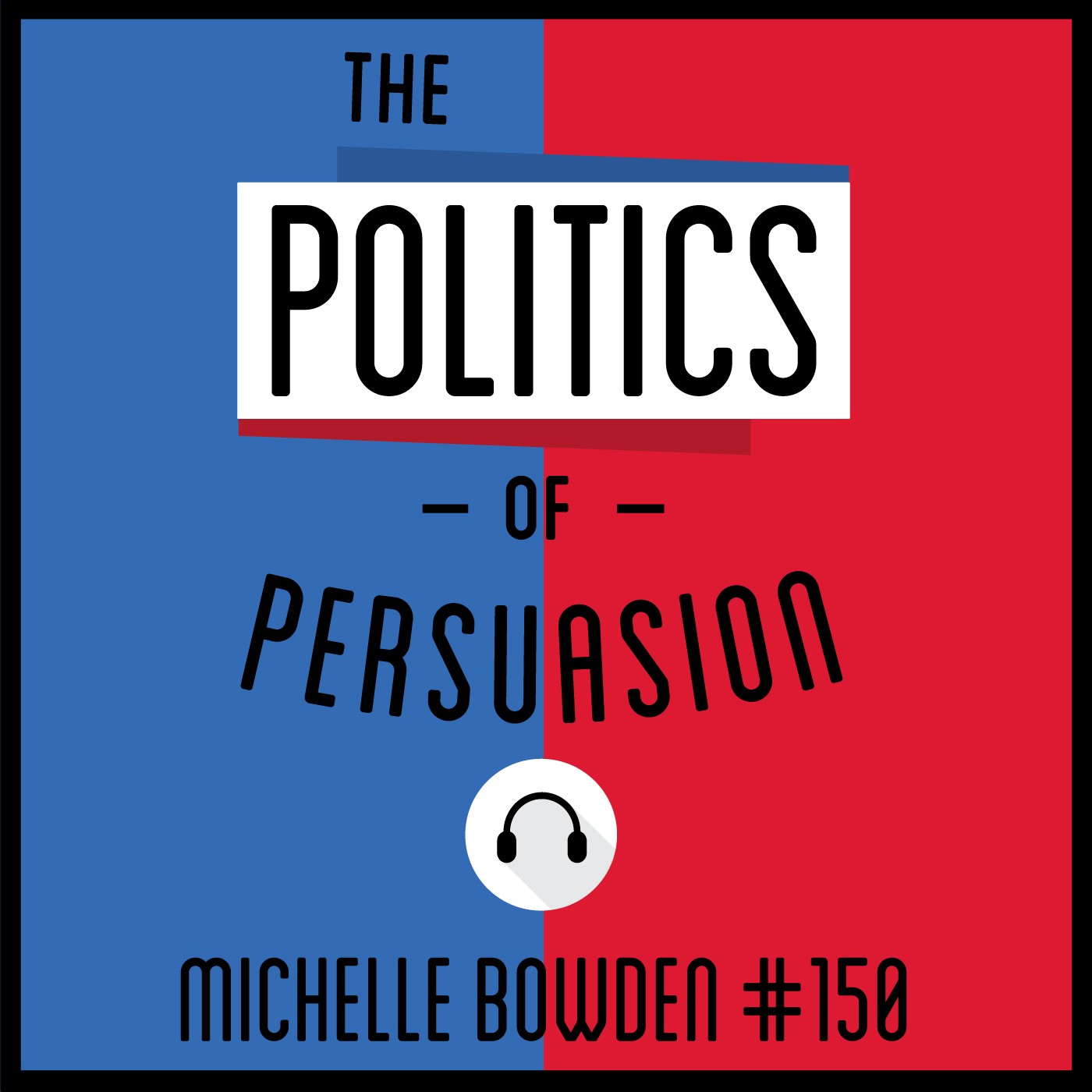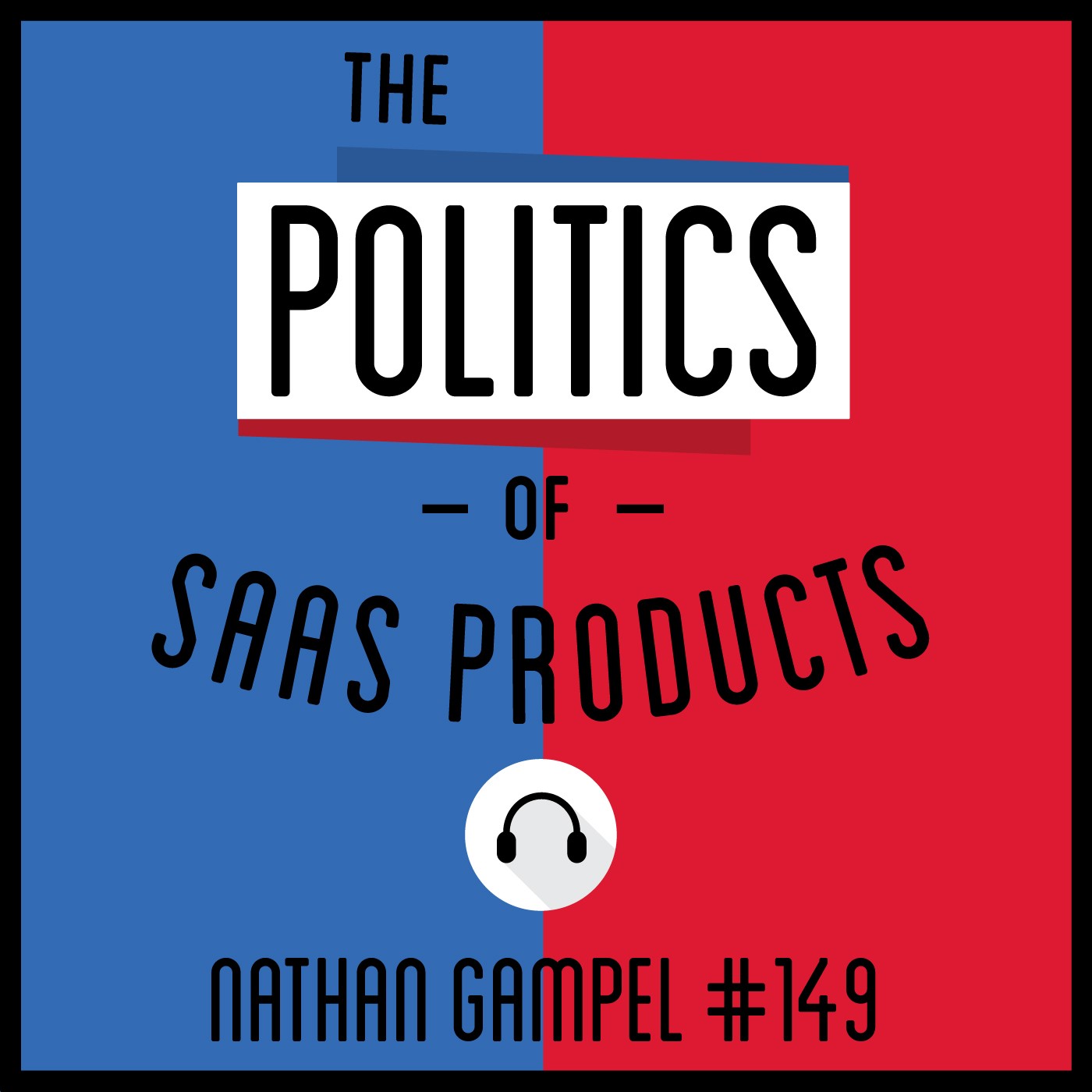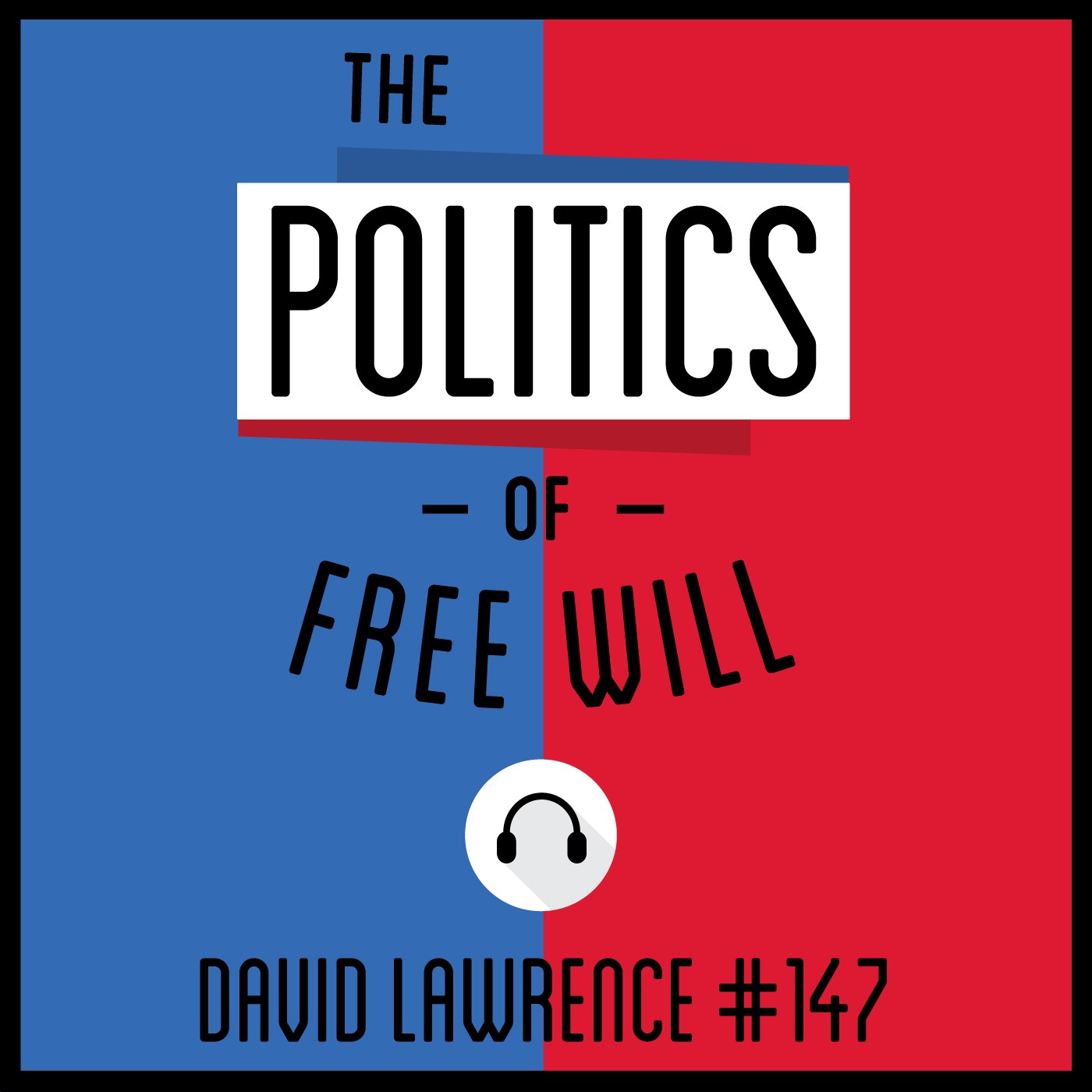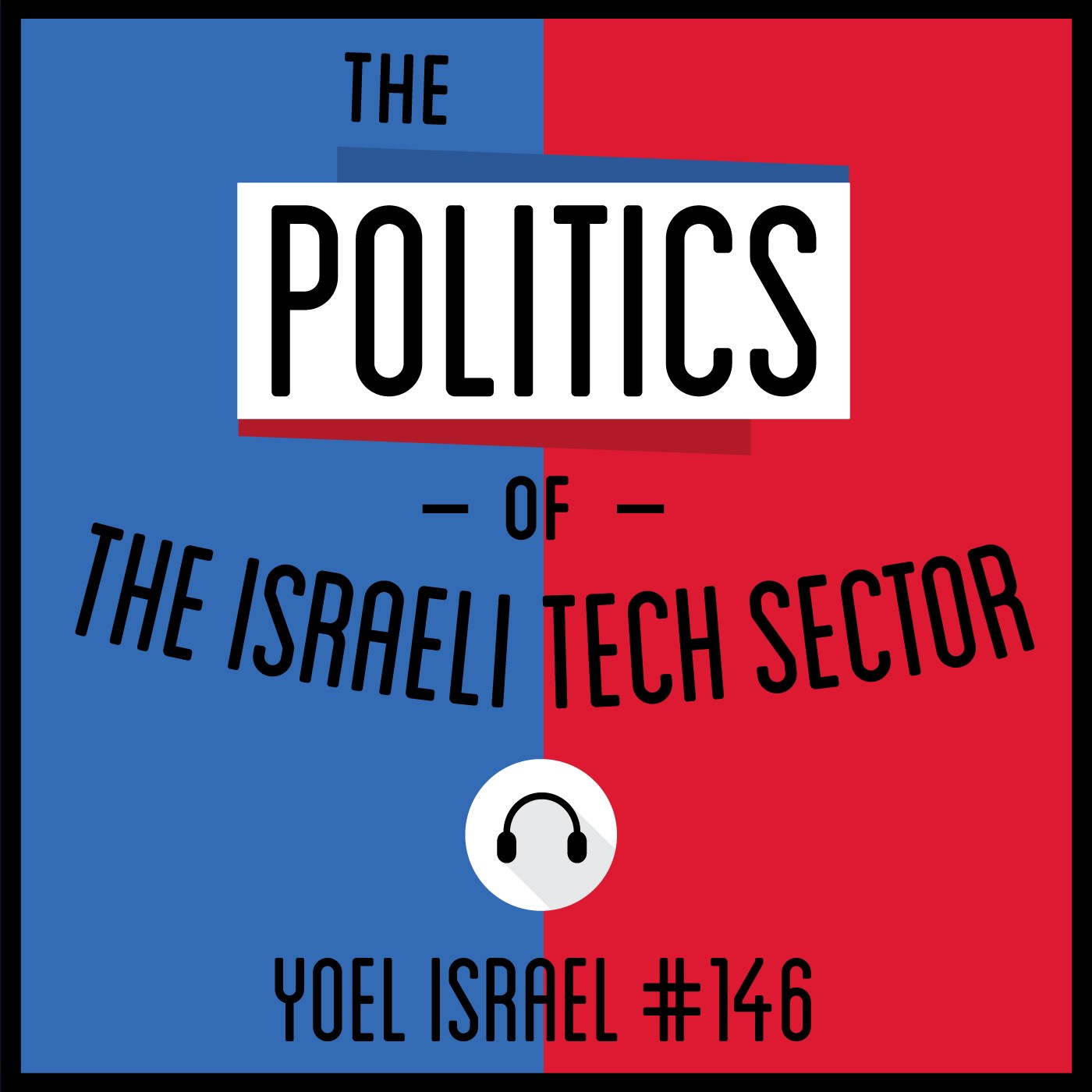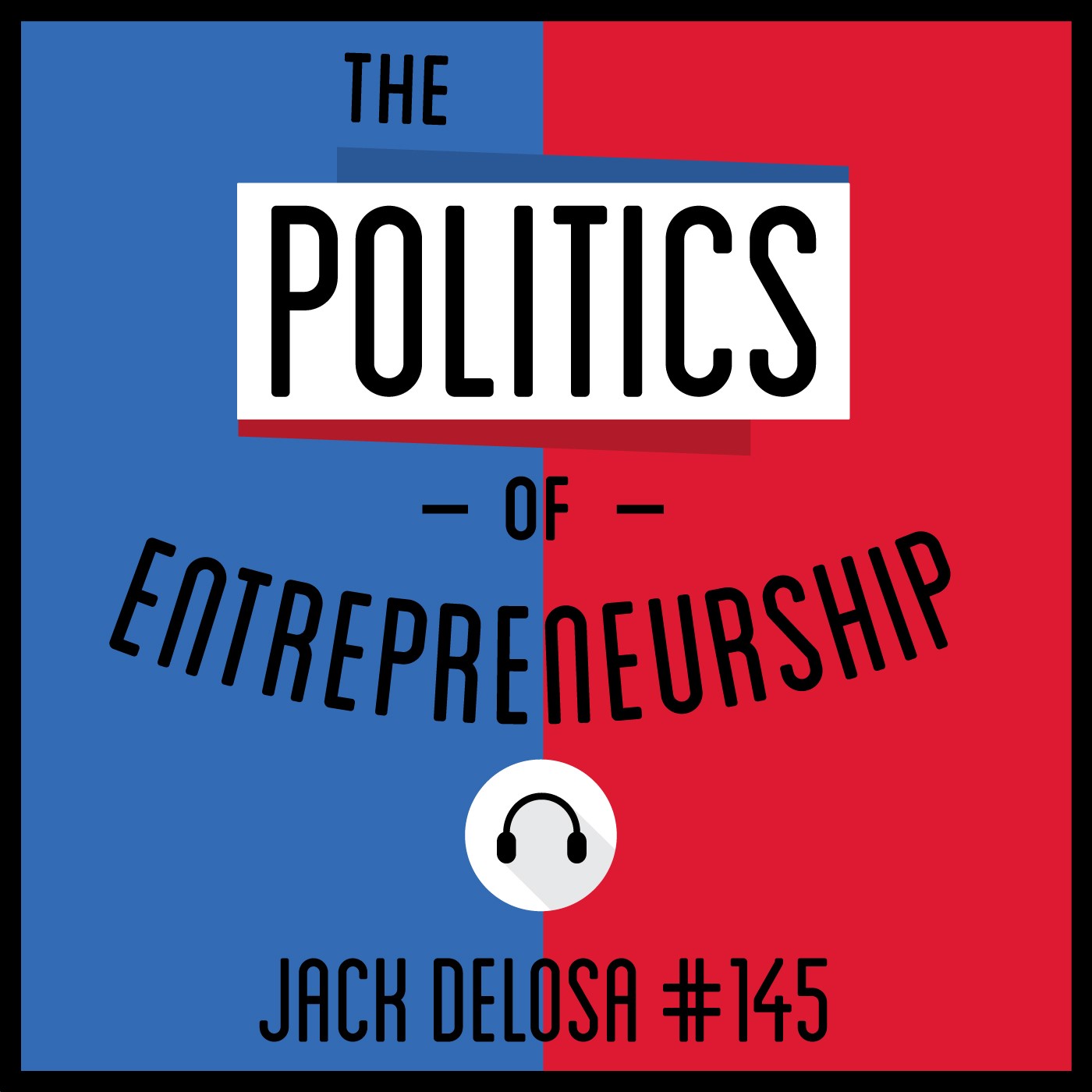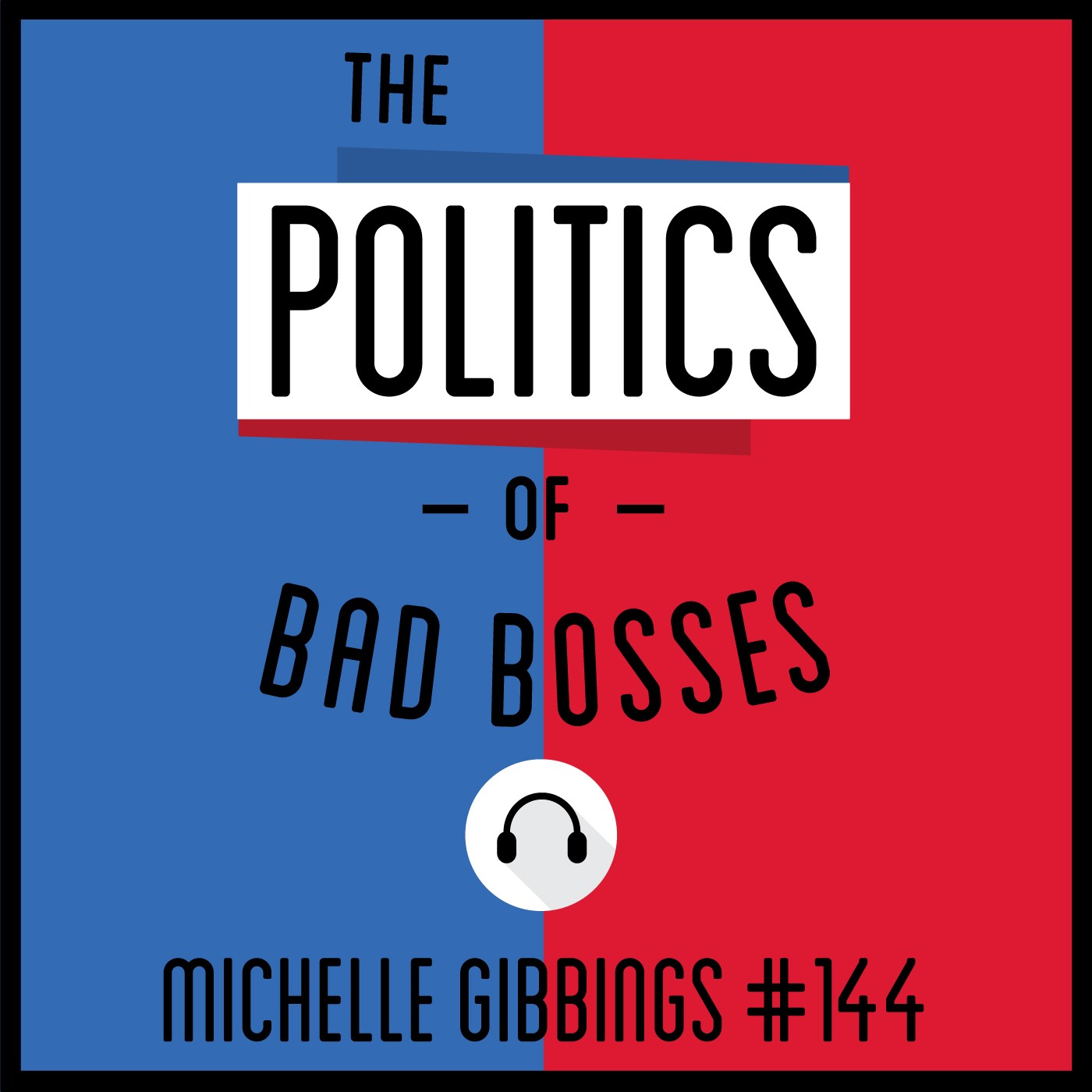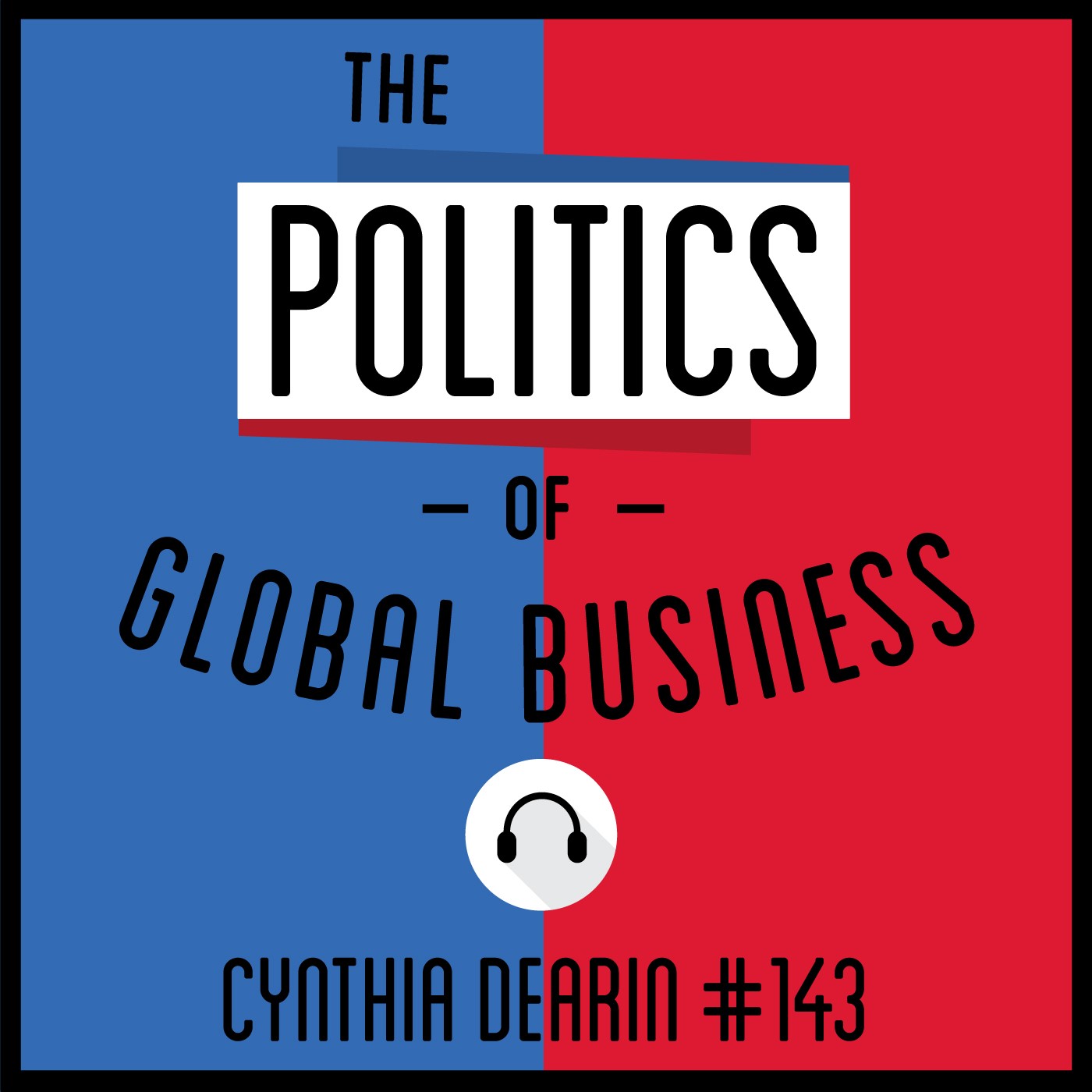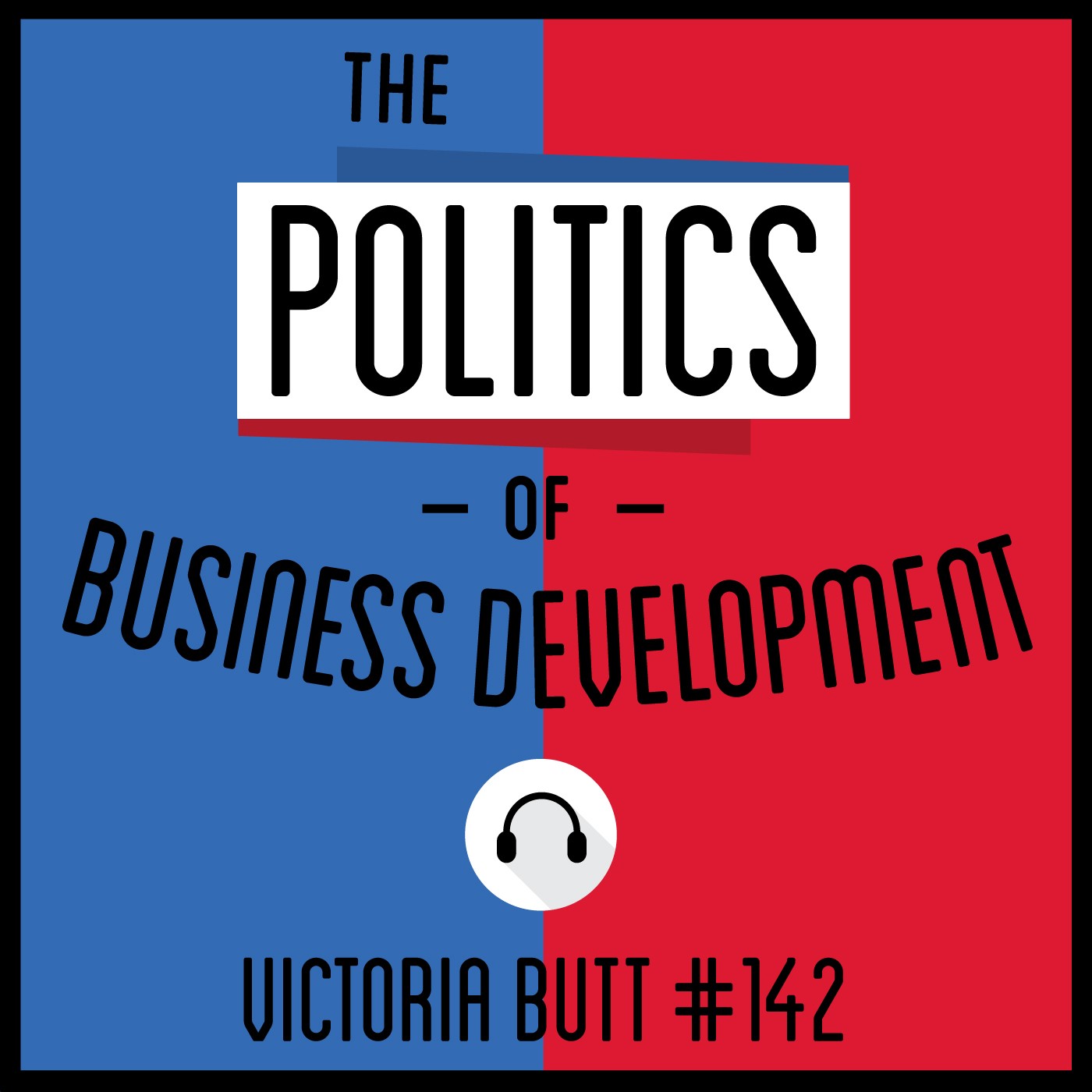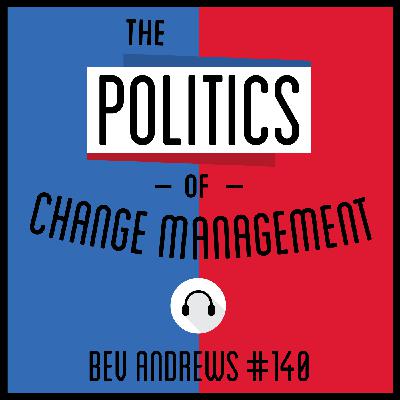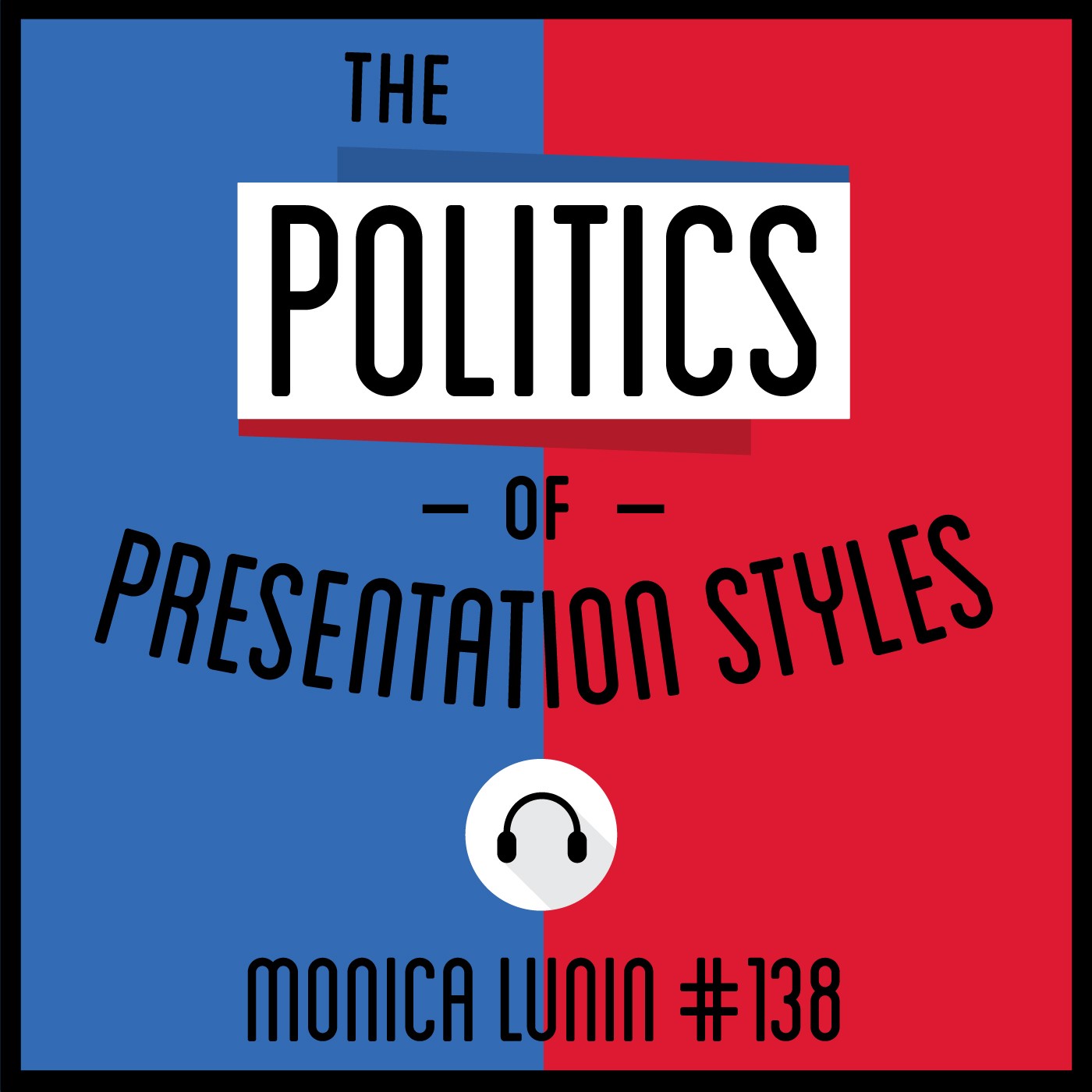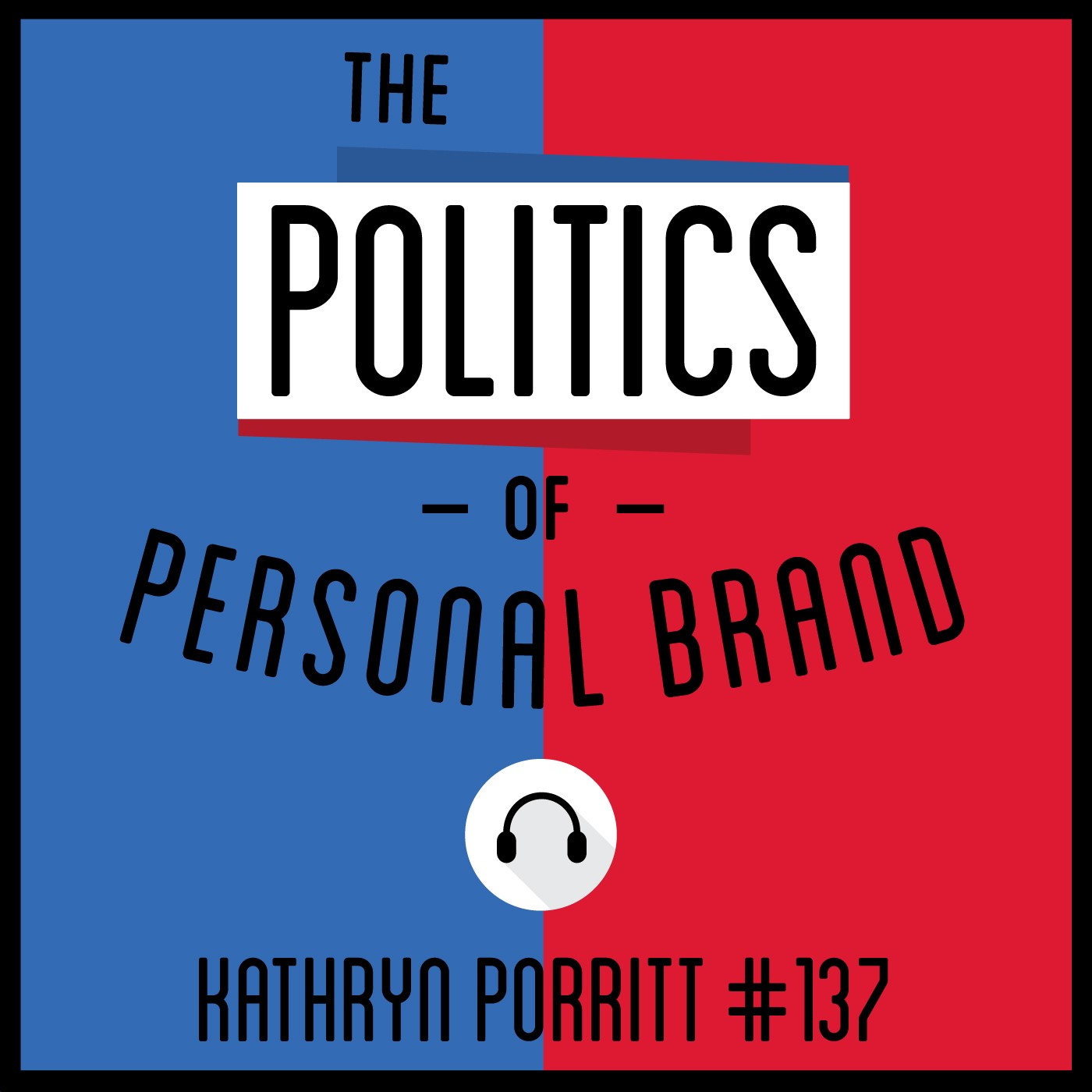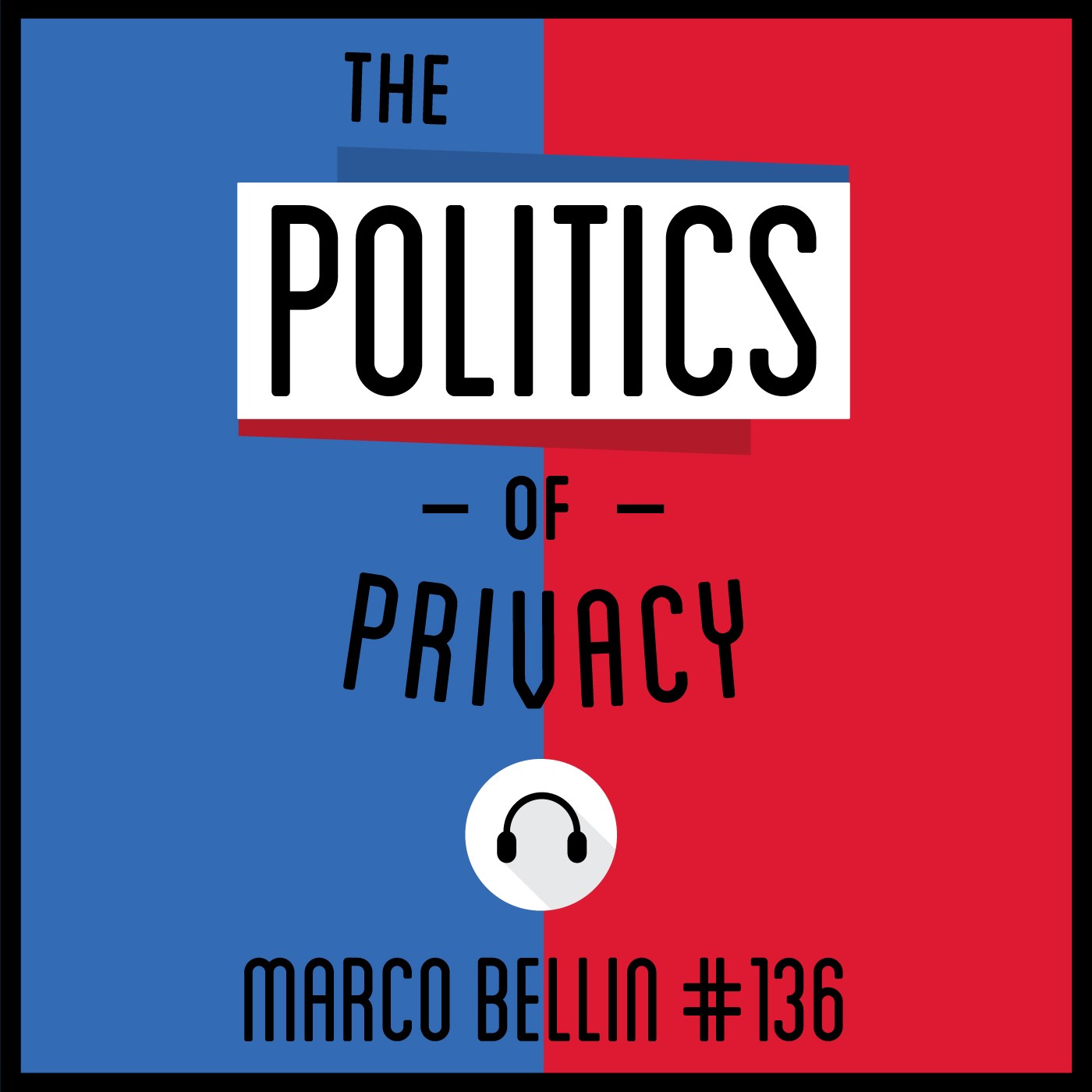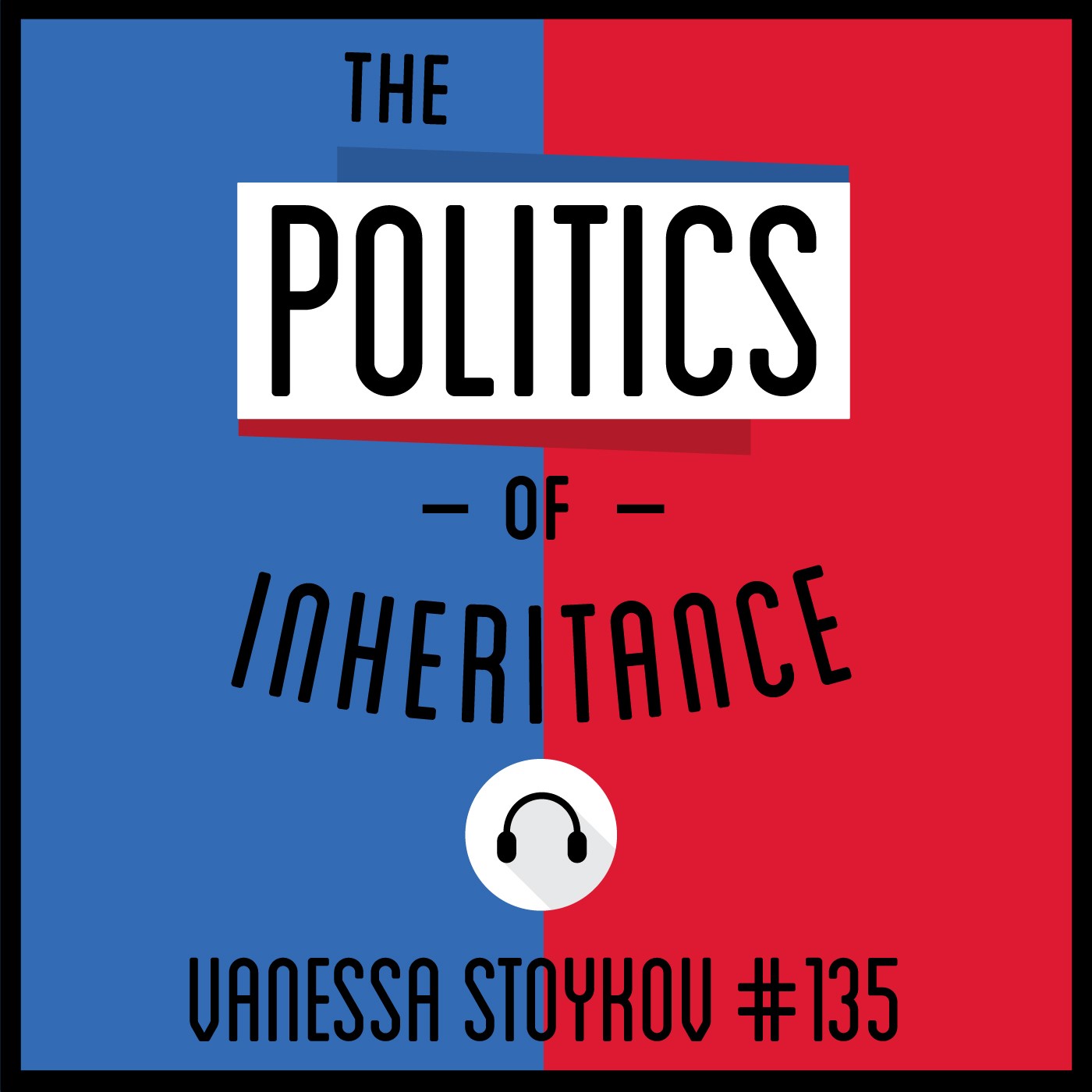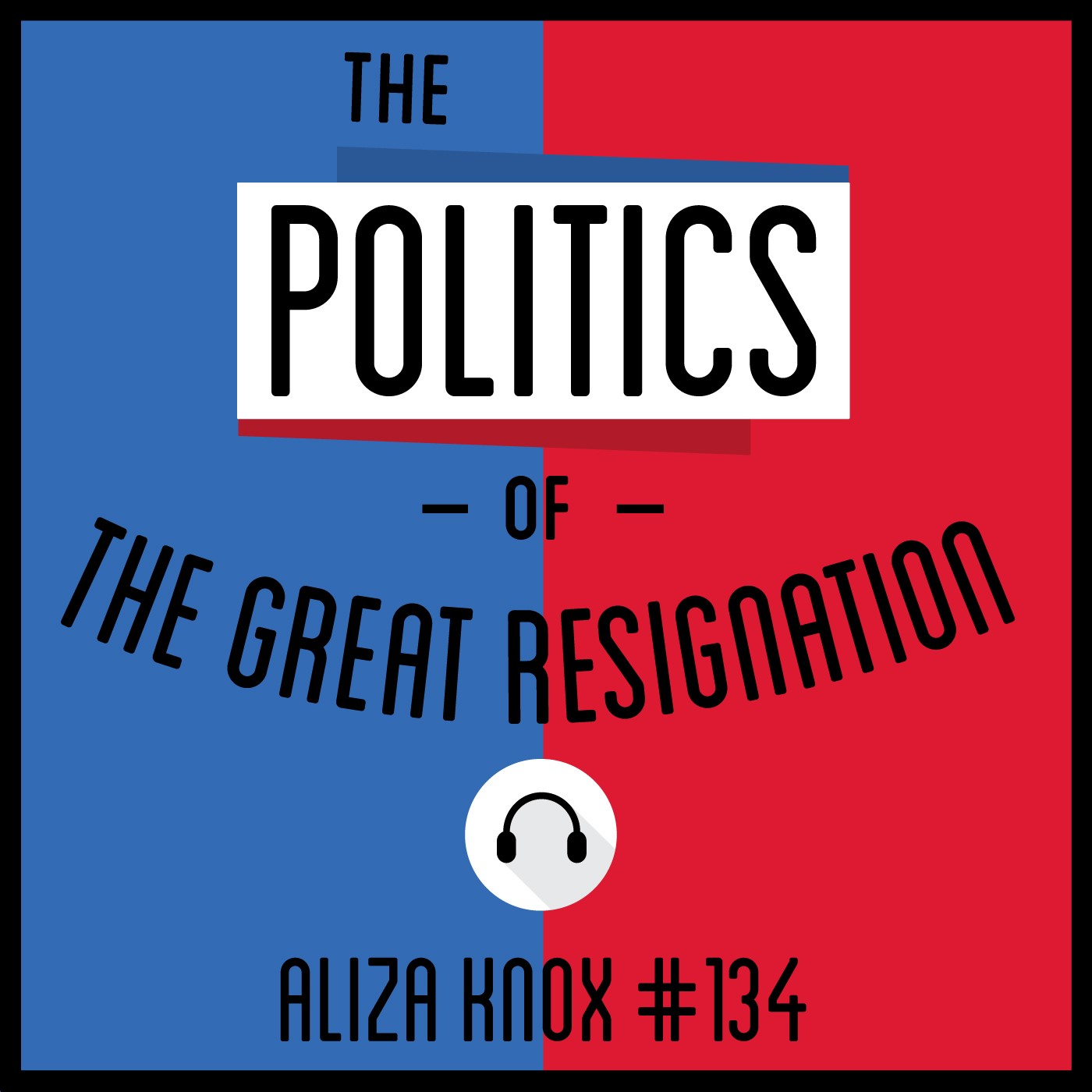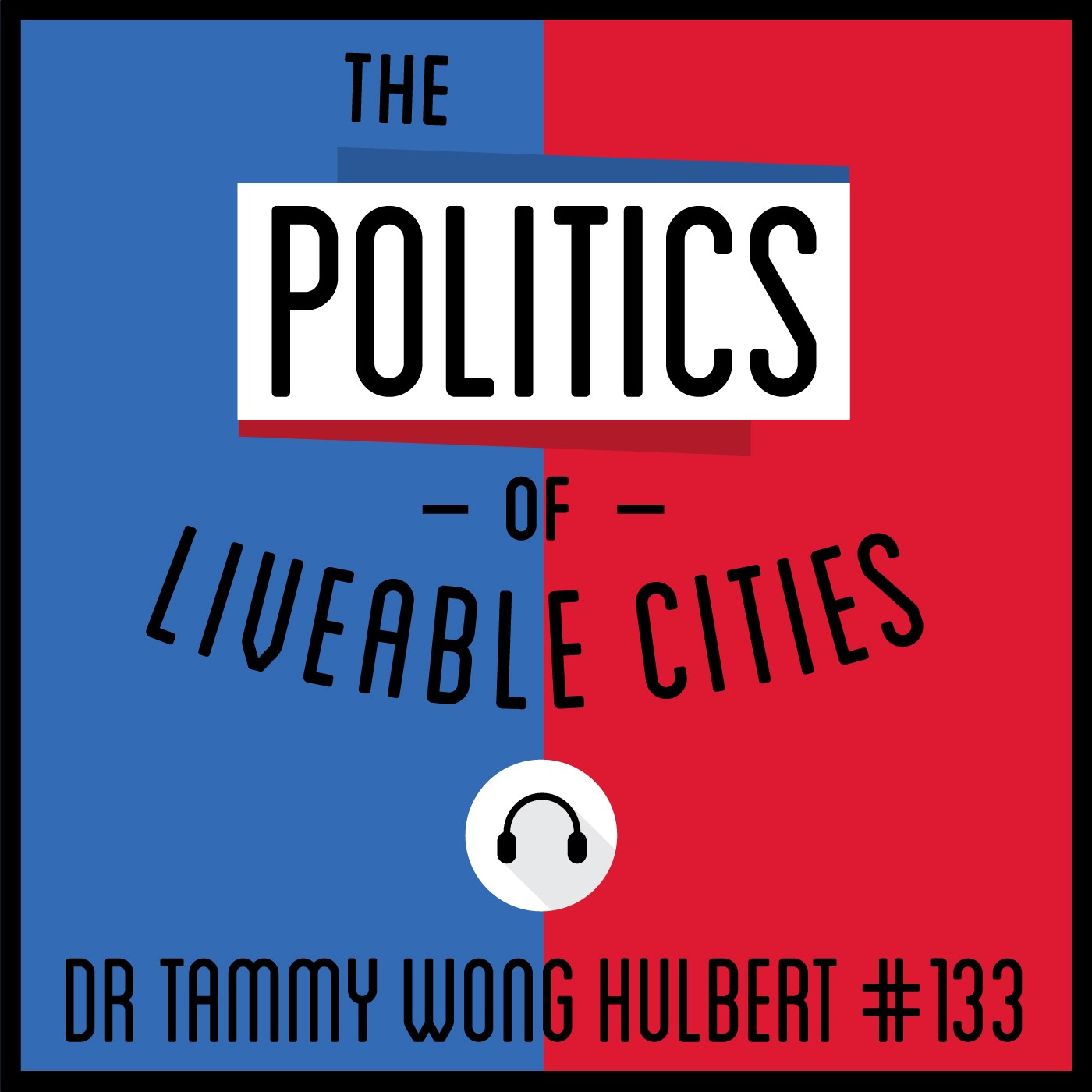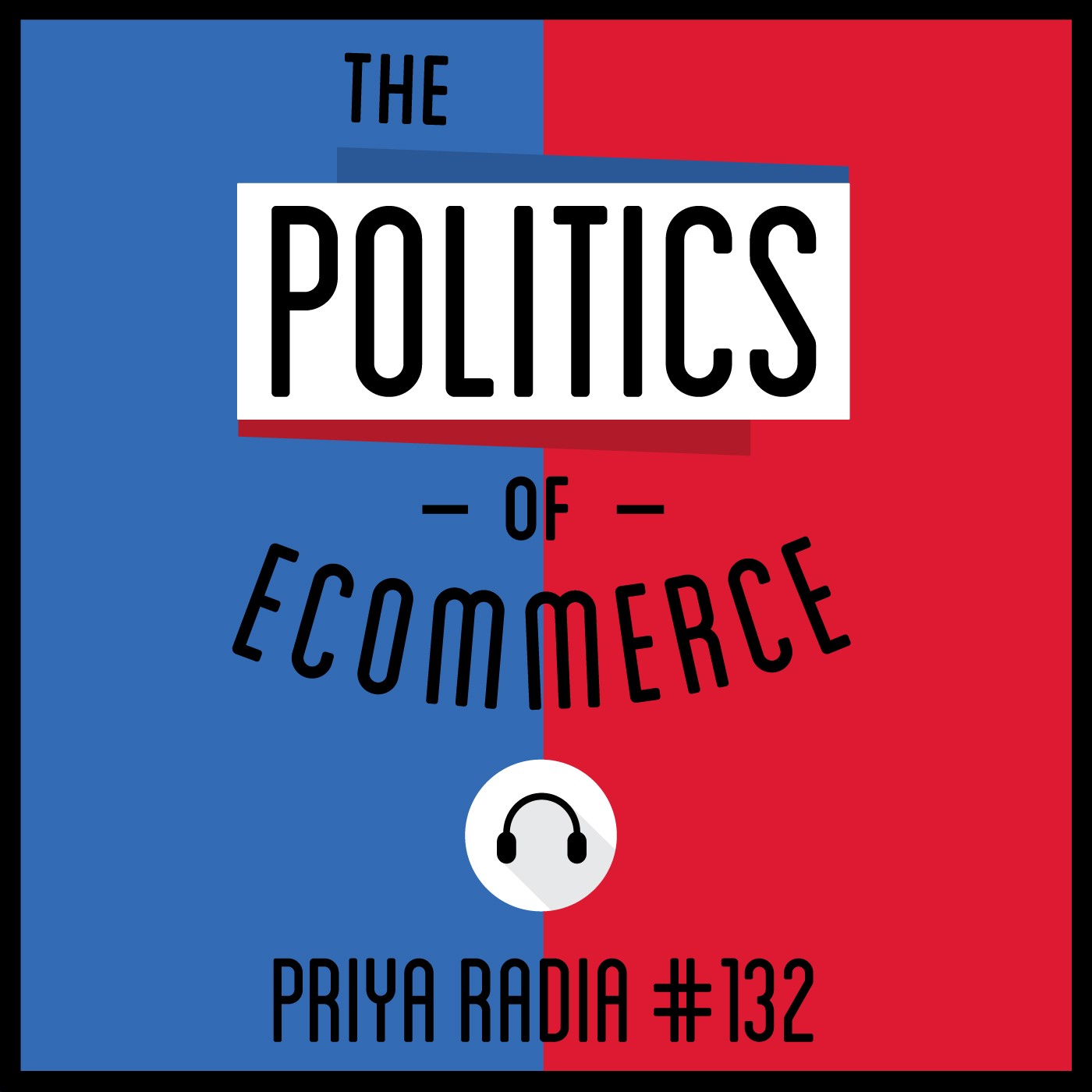Discover The Politics of Everything
The Politics of Everything

The Politics of Everything
Author: Amber Daines
Subscribed: 20Played: 198Subscribe
Share
Description
A weekly podcast series asking newsworthy experts and leaders the tricky questions about the politics of everything that matters to mankind in the 21st century. Host Amber Daines is a former journalist turned media trainer, speaker, and author who is also devoted to raising her young family.
217 Episodes
Reverse
Welcome to the first episode of my 2023 season of The Politics of Everything. Today's topic is one close to my heart and well, let's be honest, my business life! We are talking about The Politics of Media.
My guest Nic Hayes knows the media game (despite being a former police officer!). He is a 20-year veteran of media, with a broad range of experience covering all aspects of the media cycle; from public relations, radio/TV broadcasting, and media intelligence to now providing Australia's media with content and expert talent. Nic launched Media Stable in 2012 after he recognised the increased pressure producers and journalists were under. There was also a need for a different approach for businesses and experts to get their messages, stories, and opinions in front of the media.
Nic is a great connector and true relationship builder, and the success of Media Stable has been built on the strong ties and contacts he has developed and nurtured during his two decades of media industry experience. The media landscape has changed so much in the past two decades and what worked in 2003 is not as likely to lead to coverage in 2023. However, some hard and fast rules still apply whenever we engage with journalists, producers, and editors.
We hear from Nic on:
1. What are the hardest things about 24/7 media cycles and is that something that may shift in the near future, maybe as audiences want, for example, less screen time now we are not locked down at home anymore?
2. How does social media interrupt or complement traditional media and are they really different beasts? Explain the insider view!
3. What trends in media are you seeing?
4. How do you advise people to measure median success or ROI?
5. Take away: What is your final takeaway message for us on The Politics of Media?
CONTACT INFO:
LinkedIn: (23) Nic Hayes | LinkedIn [https://www.linkedin.com/in/nichayes/?originalSubdomain=au]
Website: https://www.mediastable.com.au [https://www.mediastable.com.au/]
Zencastr promo Timestamps:
2:04 - Call to action!
Use my special link zen.ai/thepoliticsofeverything and use thepoliticsofeverything to save 30% off your first three months of Zencastr professional. #MadeOnZencastr
https://zen.ai/thepoliticsofeverything
28:55 - Zencastr Crowdfunding
Interested in investing in Zencastr? Go to wefunder.com/zencastr to claim your slice of the Future of Podcasting!
Content creation is sometimes seen as the "fun" part of marketing for businesses and leaders. That said, it takes a degree of vision, commitment, and even some failure to get traction with your target market. My guest today knows how to make content that is both content-rich and money-making!
LaTisha Styles is a marketing expert, mentor to high-achievers, and the Founder & CEO of You've Got Clients®. She is an Online Marketing Certified Professional®, and a Psych-K® Facilitator who helps entrepreneurs shift subconscious blocks to establish the beliefs that form the foundation of their dream as well as shift any limiting beliefs or subconscious blocks standing in the way of that dream.
She is an avid content creator who produces content-rich videos about marketing strategy, online business ideas, personal development, manifestation, and other thought-provoking short speeches.
Leaning on her expertise she has helped hundreds of coaches build their businesses into multi-6-figure businesses, and has consulted and partnered as a content producer, ambassador, and expert for high-profile companies including Progressive Insurance, The National Association of Realtors, Beazer Homes, and PNC Bank. She has also been featured on Forbes, Business Insider, Credit Suite, Part-Time Money, and more.
In the podcast, you will hear:
1. What makes great content creation in 2022 and how has that changed over the past few years?
2. What is your favourite way to distribute content – maybe a social media platform or something in real life – and why is that the case?
3. What rules do you set for yourself and your clients before they create a video or share an idea online that lands and creates noise?
4. How do self-limiting beliefs perhaps block creative content for some people and what is the way to overcome that fast?
5. Your most challenging content creation experience and what did that teach you?
To connect with LaTisha:
https://instagram.com/latishastylestv https://facebook.com/latishatv https://youtube.com/latishastyles
If you are a podcaster who wants to record quality sound with ease, sign up to Zencastr Professional account today for a 30% discount. To reclaim this amazing Zencastr offer designed for The Politics of Everything audience, just use the Link: zen.ai/thepoliticsofeverything and use Promo Code: thepoliticsofeverything.
Persuading others to think, feel or do something is part of human nature.
My guest today has written a book entitled 'How to Persuade' – showing us the skills you need to get what we want. In it. Michelle Bowden provides readers with research-proven techniques to master the art of persuasion. Through engaging, real-world examples, Bowden shows how to transform your weaknesses into strengths to move people from 'no' to 'yes' - every time.
Michelle is a Certified Speaking Professional and communication skills coach. Over the past 23 years, Michelle has delivered her Persuasive Presentation Skills Masterclass more than 950 times for over 12,000 people. Her client list is a Who's Who of international business, from banking and finance to information technology, pharmaceutical, telecommunications, and retail—and her coaching has helped those businesses win multi-million-dollar bids and projects.
She is also the best-selling author of How to Present: The Ultimate Guide to Presenting Your Ideas and Influencing People Using Techniques that Actually Work.
We discuss:
1. We hear terms like coercion which is largely negative and influence which seems to be more on trend as a term, but persuasion is not the same right? How do you define it?
2. Every day we're faced with moments where we either win or lose - whether it's trying to convince your boss to approve your leave, secure a business deal or even win an argument with friends. So, what's the key to winning more of the time?
3. How can we tweak our communication style to be more persuasive in everyday life?
4. Is there a process we can adopt to get more strategic on the art of persuasion?
5. Take away: What is your final takeaway message for us on The Politics of Persuasion?
CONTACT INFO:
LinkedIn: https://www.linkedin.com/in/michellebowdenenterprises/
Special Listener Zencastr offer for all my podcast friends!
For everyone that signs up for the Pro Plan or higher, you will be receiving $10 for every month they stay on past the 14-day trial period, maximum of $30 if they stay on for at least 3 months on the Pro Plan.
To use your code, go to the pricing page and enter promo code - thepoliticsofeverything at the Coupon Code field found underneath the individual plans
Custom Link: zen.ai/thepoliticsofeverything Promo Code: thepoliticsofeverything (case sensitive) Call To Action (CTA): I want you to have the same easy experience I do with my podcasting and content needs. If you go to zencastr.com/pricing and enter the promo code thepoliticsofeverything, you'll get 30% off your first three months of PRO or higher individual plans. It's time to tell your story!
Software as a service (or SaaS) is a way of delivering applications over the Internet—as a service. Instead of installing and maintaining software, you simply access it via the Internet, freeing yourself from complex software and hardware management.
SaaS applications are sometimes called web-based software, on-demand software, or hosted software. Whatever the name, SaaS applications run on a SaaS provider's servers. The provider manages access to the application, including security, availability, and performance. Many of us use these applications daily!
Today I speak to Nathan Gampel, the CEO of Simpel and Associates, who are known as business transformation specialists. For more than two decades, Nathan has advised leading organizations on their most complex change programs. From private equity led mergers and acquisitions to modernizing how global organizations work, Nathan helps companies win at change. Nathan is also the inventor of Kinetic Transformation; a patent-pending algorithm for understanding change at scale and creating actions that beat the 70% challenge.
For anyone who wants to understand the world of SaaS, this is your episode.
In this podcast, Nathan will share:
1. SaaS platforms involve software that is available via third-party over the Internet. Examples of popular SaaS providers include BigCommerce. Google Workspace, Salesforce. These are household names but not always! How did this happen?
2. Can you define what Saas is and how it has evolved over time?
3. What role does SaaS play in business transformation and how? Some examples would be great!
4. What kinds of SaaS products do you see in the next few years and who can benefit?
5. Take away: What is your final takeaway message for us on The Politics of SaaS Products?
CONTACT INFO:
LinkedIn: (1) Nathan Gampel | LinkedIn [https://www.linkedin.com/in/nathan-gampel-1945914/]
Free will is something we all perhaps don't think a lot about in our everyday
lives.
My guest today David Lawrence is the author of Are We Biochemical Robots
[https://biochemicalrobots.com/]. He is a social critic and animal rights
advocate, and philosophical proponent of free will, opposing the determinist
views held by many new media personalities. David wrote his book as a response
to the 10th anniversary of another author Sam Harris' book Free Will,
[https://www.samharris.org/books/free-will] in an effort to expose the flawed
thinking that Harris' book and determinist ideology present - and to address the
central arguments against the existence of free will.
David holds a B.A. in Philosophy from UCLA as well as Jurisdoctor Law Degree
from USC. So this is an episode for the thinkers among us as we discuss
determinism, free will, and why the great debate between them matters more than
ever.
We talk about:
1. How can free will be defined and is it something most humans take for
granted? Please explain your perspective in a few sentences.
2. What is determinism and what does that have to do with free will?
3. In your words, determinists have markedly grown in number over the past
decade, in large part due to a misreading of neuroscience studies seeking to
link prior neural brain activity to the exercise of choice. At the same
time, the moral importance of the free will debate has been increasing in
intensity due to other scientific findings, which demonstrate that
determinist beliefs promote cheating and other anti-social conduct. For many
successful people and those who aspire to be say wealthier or smarter or
more goal-orientated that may seem like the natural way to reach their goals
in business or sport, for example. What is the counter argument to this and
how can it help society function better?
4. Take away: What is your final takeaway message for us on The Politics of
Free Will?
CONTACT INFO:
https://www.biochemicalrobots.com/
biochemicalrobots@gmail.com
Israel is an entrepreneurial powerhouse and a hotbed for pioneering
technologies, profitable business opportunities, and high investment returns.
For these reasons, it is no surprise that the world's leading multinational
companies have all chosen Israel: Microsoft, Motorola, Google, Apple (three R&D
centres), Facebook, Berkshire-Hathaway, Intel, HP, Siemens, GE, IBM, Philips,
Lucent, AOL, Cisco, Applied Materials, IBM, J&J, EMC, and Toshiba are just some
of the names in a long list of over 200 MNCs who realized that Israel is their
ideal investment opportunity
Furthermore, many multinational corporates such as Tata, Kodak, Citi bank, and
many others have established innovation HQs in Israel.
So how does Israel manage to stay on top of technology in a variety of sectors?
Moreover, what makes it so unique that so many international players come and
seek the next innovation here?
To find out, we hear from Yoel Israel an Israeli-American tech entrepreneur who
has been at the forefront of the Israeli marketing ecosystem.
He founded WadiDigital, Israel's leading technology marketing agency, and
Cyfluencer, a cybersecurity influencer & distribution platform as well as Israel
Unfiltered a social platform that highlights the culture and the people of
Israel, to the English-speaking world.
Yoel's extensive background in marketing and technology is matched only by his
passion for innovation and entrepreneurship. He has been able to establish
himself as a leader in the industry, both through building WadiDigital and
founding Cyfluencer.
Today, Yoel lives in the Haifa District of Israel with his wife and two
daughters. Shalom Yoel.
Hear from Yoel about:
A FEW QUESTIONS TO PREPARE FOR:
1. How did Israel become the self-proclaimed tech start-up capital of the
world? It must be more than just government support?
1. In 2016 alone, Israeli start-ups raised a record $4.8 billion from
investors, while high-tech and start-up companies were sold for $10.02
billion through acquisitions or IPO's. Israel is also home to the highest
number of engineers per capita and has the world's 2nd highest R&D
expenditure as percent of GDP (4.3%). Has the pandemic and factors like wars
and inflationary pressures in the USA for example dampened this in 2022?
1. One recent article I read says
[https://www.timesofisrael.com/israeli-tech-sector-is-strong-but-areas-of-vulnerability-pose-challenges/]
"Israel's tech ecosystem is strong and vibrant, but areas of vulnerability
could pose challenges to the industry and possibly to the wider Israeli
economy" – this was warned the outgoing executive director of tech-focused
organization Start-Up Nation Central (SNC), Wendy Singer. What do you think
of this perspective and how can that be overcome?
1. Take away: What is your final takeaway message for us on The Politics of the
Israeli Tech Sector?
CONTACT INFO:
https://www.linkedin.com/in/yoeltisrael/
https://twitter.com/YoelTIsrael
Entrepreneurship is often lauded with stories of skyrocketing success which
inspire us to think about our own careers and business experiences. This success
and public profile sometimes come after one or two big setbacks, maybe in the
wake of business lessons learned hard way and bankruptcies even.
My guest today is both an entrepreneur and someone who leads scores of budding
entrepreneurs. Jack Delosa has personally trained, mentored, and presented live
to over 245,000 entrepreneurs and companies including ASX200 companies, SMEs,
governments, athletes, NRL and AFL clubs, celebrities, and some of the world's
leading entrepreneurs.
Jack has a string of accolades like being a five times AFR Young Rich Lister, a
two-times-selling author, and the founder of Australia's largest business
coaching and training provider for entrepreneurs, The Entourage, which has a
community of 650,000 members. Since 2010, The Entourage has helped members add
over $2 billion in value to their businesses. Under his leadership, The
Entourage has been awarded the 4th Best Place to Work in Australia, and the Top
50 in Australasia, by Best Places To Work.
Jack is also a high-profile investor, having invested in companies spanning
biotechnology, luxury real estate, finance, e-commerce retail, recruitment, and
even aviation, including one company that became what's known in Silicon Valley
as a 'unicorn'; as in a business that goes from $0 to $1 billion within ten
years.
Hear from Jack on:
1. Are entrepreneurs born or made or is that too simplistic?
2. What made you start The Entourage and how has that program changed and kept
pace with what entrepreneurs need and want to know over the past 12 years?
3. What qualities does a true entrepreneur have and who is your pick of the
crop (favourite entrepreneur and why)?
4. Do most entrepreneurs have to take big risks or fail fast, or can there be a
slow-burn version of entrepreneurship that works well too?
5. Takeaway: What is your overarching message for anyone facing The Politics of
Entrepreneurs?
To connect:
LinkedIn: Jack Delosa | LinkedIn
[https://www.linkedin.com/in/jackdelosa/?originalSubdomain=au]
Website: https://www.the-entourage.com/
At one time or another we've all had a bad boss – whether it's through bullying
and intimidation, unfair feedback or unrealistic workloads. Their behaviour sets
the tone for what's acceptable in an organisation and can cause major issues for
productivity, staff turnover and wellbeing, especially during difficult times
like we're experiencing now. In a tough or toxic work environment, how can you
challenge your thinking and shift perspective to make relationships work? I
My guest today Michelle Gibbings has written a book Bad Boss: What to do if you
work for one, manage one or are one where she draws upon decades of experience
in corporate leadership to provide a practical transformation guide. In this
book she covers all three perspectives: the direct report, the boss and the
boss's boss, helping readers quickly identify where the issue lies, along with
actionable steps to turn things around. Michelle says that bad bosses aren't
always bad people, and it takes work at every level to create an environment
where everyone can flourish.
Michelle's previous books include 'Step Up: How to Build Your Influence at
Work', and 'Career Leap: How to Reinvent and Liberate your Career'. She is a
global keynote speaker, on a mission to help leaders, teams and organisations
create successful workplaces - where people thrive, and progress is accelerated.
1. Has the pandemic and The Great Resignation trend meant less willingness to
accept a bad boss?
2. Does remote or hybrid work shift the ways the "bad boss" dynamic operates
and make it easier or harder to shift for those relationships?
3. How can an employee improve their own voice and action change in a toxic
workplace?
4. How do you know if you are a bad boss in 2022?
5. How can a business make sure that having an eye on simply creating profits
and outputs are not the key to their management success?
6. Take away: What is your final takeaway message for us on The Politics of Bad
Bosses?
CONTACT INFO:
LinkedIn: https://www.linkedin.com/in/michellegibbings/
Website: www.michellegibbings.com [http://www.michellegibbings.com]
If you are a podcaster who wants to record quality sound with ease, sign up to
Zencastr Professional account today for a 30% discount. To reclaim this amazing
Zencastr offer designed for The Politics of Everything audience, just use the
Link: zen.ai/thepoliticsofeverything and use Promo Code:
thepoliticsofeverything.
If nothing else, the past few years of a pandemic, has proven that many
businesses rely on the global landscape – shutting borders during the Covid19
pandemic meant that many suffered from a lack of qualified staff, from missed
trade opportunities, from not travelling to events, and from being unable to
make quality connections beyond the realms of their laptop. While many
organisations have perhaps shifted their focus domestically perhaps derived from
necessity, there is no doubt that many still want to operate on a global scale.
My guest today, Cynthia Dearin is the Founder of Dearin & Associates, and she
has launched a new book Business Beyond Borders: Take Your Company Global
international. The book provides a step-by-step, accessible guide for business
owners and entrepreneurs who want to amplify their impact on the international
stage. Drawing upon decades of experience in international business, including
extensive stints working abroad in global roles, Dearing brings a unique
perspective on international expansion and guides readers on how to execute the
right strategy to ensure their success.
With 23 years of international experience, Cynthia is on a mission to empower
business owners and CEOs to scale internationally and amplify their impact in
the world. An Australian-qualified legal practitioner, Cynthia worked in the UK,
US, Europe, and Middle East, as an Australian diplomat and as a management
consultant. She also spent three years as the CEO of the Australia Arab Chamber
of Commerce & Industry.
Cynthia is proficient in Arabic and French, both of which she uses
professionally. Her previous book is Camels, Sheikhs and Billionaires: Your
Guide to Business Culture in the Middle East and North Africa.
Hear from Cynthia on:
1. Can you explain what the biggest barriers are for businesses to get global
expansion done right and how that can be remedied?
2. Not all business is a type suited to global expansion – thinking of your
local café that is not a franchise or even my PR business is probably
limited in that way. Are there hallmarks of who can scale up globally and
who can't?
3. Cultural divides exist and not all international markets are the same
clearly – what is the best way to navigate the cultural challenges and for
example, do you need to have a local team to guide you?
4. How can you go global cost-effectively and remain market price sensitive to
your global customers? Any hacks and ideas?
CONTACT INFO:
LinkedIn: www.linkedin.com/in/cynthiadearin/
W: https://dearinassociates.com/
If you are a podcaster who wants to record quality sound with ease, sign up to
Zencastr Professional account today for a 30% discount. To reclaim this amazing
Zencastr offer designed for The Politics of Everything audience, just use the
Link: zen.ai/thepoliticsofeverything
[https://amberdaines.com/podcast/zen.ai/thepoliticsofeverything] and use Promo
Code: thepoliticsofeverything
Business development is the lifeblood of any organisation. It is in many ways
about building connections and capitalising on that as well as finding new ways
to expand your product or service offering to existing customers. However, with
sales being something many people find challenging or even off-putting what does
the gold standard of great BD require?
To find out, I am speaking to Victoria Butt, who I met around 2013 in a
networking group – the perfect BD environment perhaps. Victoria is the Founder
and Executive Search Consultant of Parity Consulting, serial entrepreneur,
Founder and Chief Training Officer at Evolve Sales Training
[https://www.evolvesalestraining.com.au/], Board Member for Entrepreneurs
Organisation Sydney and Angel Investor for BIPOC women. In 2021, BIPOC angels
was created, an angel investment fund exclusively working with and supporting
females who are Black, Indigenous, People of Colour. A decade ago she founded
Parity Consulting, a recruitment organisation specialising in placing diverse
and capable talent in Product, Pricing, Digital, Marketing and Data Analytics.
Parity was founded to reshape how the industry saw candidates and lift them to
be equal to the client. In 2017, she joined Entrepreneurs Organisation in Sydney
and lead the first Diversity, Equity and Inclusion initiative the organisation
had seen in the APAC region, and now sits on the Sydney Board for member
success. In 2020 at the height of COVID-19, Victoria set up Evolve Sales
Training [https://www.evolvesalestraining.com.au/], an online sales training
platform specifically for Entrepreneurs and Small Businesses. Based on long term
sales mentoring, this B2B platform provides processes, accountability and
frameworks for busy entrepreneurs and sales professionals to drive sustainable
higher revenue.
A mother of two young children, wife, blogger, and self-confesses wine snob,
Victoria is passionate about anything to do with DEIB (Diversity, Equity,
Inclusion & Belonging). Let's discuss the Politics of Business Development.
Questions that Victoria canvasses include:
1. As someone in executive search, I imagine business development has been a
key part of your career and business life. Give us a snapshot of how you
approach BD?
2. Great products and services don't always mean money spinners. My career is
in PR and strategic comms and I am always amazed when businesses focus on
the shiny stuff like fancy content or social media images on say Instagram
and then find that alone won't convert to sales. What is the secret sauce
you see missing in many business's sales training practices?
3. More than 40% of actual salespeople say prospecting is the most challenging
part of the sales process, followed by closing (36%) and qualifying (22%).
How can BD be done organically and authentically – many people who love
their business still find "sales" approaches challenging?
4. Is there a tried-and-true way to create a funnel or sales or similar that
lands with the right target audience more and converts to sales faster?
5. What role does automatic and tech play in business development and
ultimately sales? Can you share an example or two?
CONTACT INFO: LinkedIn: (15) Victoria Butt | LinkedIn
[https://www.linkedin.com/in/victoria-butt-product-executive-recruitment-parity-consulting-sales-training/]
W: (15) Parity Consulting: Overview | LinkedIn
[https://www.linkedin.com/company/parity-consulting/] and Evolve Sales Training
– Evolve Sales Training [https://www.evolvesalestraining.com.au/]
If you are a podcaster who wants to record quality sound with ease, sign up to
Zencastr Professional account today for 30% discount. To reclaim this amazing
Zencastr offer designed for The Politics of Everything audience, just use the
Link:
The tech field lags far behind on workplace gender equality: There's a stark
difference in hiring quotas, salary, and retention numbers for women in tech
compared to their male counterparts – pointing out deeper inequalities and
foundational problems in the industry.
I am in conversation with Paula Bratcher Ratcliff. She is the force behind Women
Impact Tech, a community for collaboration, professional growth, and belonging
to inspire, educate, empower, and advance women in technology. This is her big
goal!
Paula argues that just because a company has a good diversity, equity, and
inclusion (DEI) statement doesn't mean they follow through. It's about building
support systems – having an active and purposeful mission to elevate your
employees – especially women or other under-represented groups in your office.
A few months ago, Women Impact Tech released its first-ever Women Impact Tech
100 list
[https://mbemag.com/articles/women-impact-tech-honors-impactful-dei-programs/],
honouring the 100 top organizations where diversity, equity, and inclusion (DEI)
statements go above and beyond to foster an equitable and thriving workplace
environment for women. Coinciding with International Women's Day earlier this
year, the Women Impact Tech 100 highlights the most innovative, ground-breaking
tech companies that prioritize DEI initiatives in their company
foundation—making it clear through tangible action that diversity is a key
contributor to overall company success. The best of the progressive companies
who prioritize DEI make up the 2022 Women Impact Tech 100. The list was compiled
after extensive research and review using public data, including employee
feedback on workplace culture for women and other under-represented groups,
company benefits, and perks, and dedicated DEI efforts.
Hear from Paula about these areas:
1. Women in tech seem to still face so many challenges. Inequity across the
board, underpaid and underrepresented. Studies show female managers at tech
companies make 10% less on average than their male counterparts across major
cities. Women make up just 28.8% of the total tech workforce while women of
color only make up 4% of the computing workforce and almost no senior
leadership roles. How can this change faster?
2. Why should more women want to work in tech? Sounds like it may not want us!
3. The pandemic's impact on women in tech was stark. Women in the tech industry
were twice as likely to be furloughed or laid off than their male
counterparts throughout the pandemic. 54% of women say that the pandemic is
making it harder for them to break into the tech industry. Meanwhile, 38% of
those who do break in, plan on leaving in the next 2 years, and many report
dissatisfaction with the industry. Why are many qualified women leaving the
tech industry and what can businesses do to retain them?
CONTACT INFO:
LinkedIn: Paula R. Bratcher Ratliff | LinkedIn
[https://www.linkedin.com/in/paularatliff/]
W: Women Impact Tech | WIT [https://womenimpacttech.com/]
https://www.linkedin.com/company/womenimpacttech/
If you are a podcaster who wants to record quality sound with ease, sign up to
Zencastr Professional account today for 30% discount. To reclaim this amazing
Zencastr offer designed for The Politics of Everything audience, just use the
Link: zen.ai/thepoliticsofeverything [https://zen.ai/thepoliticsofeverything]
and use Promo Code: thepoliticsofeverything.
Bev Andrews is a change management expert. For several years now, I have worked
with and witnessed the rise of the change management function in a range of
organizations – from utilities to banks and all kinds of businesses. Usually
communicating change takes patience, time, and a lot of nuanced approaches to
get it going.
Change management draws on theories from many disciplines, including psychology,
behavioural science, engineering, and systems thinking. And there are many
different models to choose from. A central idea of all change management
theories is that no change ever happens in isolation. In one way or another,
change impacts the whole organization and all the people in it. But with good
change management, you can encourage everyone to adapt to and embrace your new
way of working. Sounds easy enough.
My guest Bev has devoted the past 20 years of her career to delivering business
solutions across a broad range of services in a diverse set of industries. Bev
has extensive experience in Organisational Management – managing, developing,
and facilitating change to achieve organizational improvement and
transformation. During her career, Bev has worked within organizations of
different shapes and sizes, including those shown below. Bringing this
experience to her business now, ASPIRE Change Management, Bev continues to
provide the highest level of practical and empowering change management support,
training, and advice to Australian businesses.
Unlike other consultancies, Bev's company ASPIRE specializes only in change
management. They provide end-to-end change management, which includes strategy,
planning, delivery, and capability development. Working strategically and
tactically, ASPIRE leverages your processes and tools and engages your employees
on the journey.
In this podcast you will hear:
1. What is change management and how does it ideally work for an organization?
2. What is the basis of your framework for change management?
3. How can a business know if it's getting change management right?
4. A Harvard Business Review found 81% of the projects with effective change
management came in on or under budget, according to the study. When change
management wasn't as effective, there was a clear negative fiscal impact.
The Harvard Business Review suggests 60-70% of all the change initiatives
undertaken in organizations fail and a 2015 McKinsey study found the same
kind of figures. What common mistakes do you usually see that may interrupt
how change managers can bring their best to an entity?
5. Take away: What is your final takeaway message for us on The Politics of
Change Management?
CONTACT INFO:
LinkedIn: (14) Bev Andrews | LinkedIn
[https://www.linkedin.com/in/bev-andrews-16388120/?originalSubdomain=au]
W: ASPIRE CHANGE MANAGEMENT - Home [https://www.aspirechangemanagement.com.au/]
If you are a podcaster who wants to record quality sound with ease, sign up to
Zencastr Professional account today for a 30% discount. To reclaim this amazing
Zencastr offer designed for The Politics of Everything audience, just use the
Link: zen.ai/thepoliticsofeverything and use Promo Code:
thepoliticsofeverything.
While many of my guests are talking from experience, and often professional
prowess is at the heart of these podcasts. But not always – life is more than
career or business and The Politics of Everything was never designed to be an
entirely "business-minded podcast."
Enter today's guest whose new book How to get laid on Tinder – for Men caught my
imagination right away!
To set the scene. Maureen Pound had not had a single date in 7 years. She was
busy running a business and raising two anonymous sperm donor children on her
own. It was after a life-changing Thailand bike ride with 50 other entrepreneurs
raising money for orphans that she decided to get back on that horse - and what
an adventure.
Over the six years that followed, she matched with thousands of men on Tinder,
talked with over 500, and met close to a hundred. She went on walks, played
tennis, had coffee, dinner, drinks, and sneaky Rendez-Vous.
She heard stories of frustration and annoyance from a lot of men and decided she
wanted to help; to share ideas and strategies to help them meet great
people. The idea for her book How To Get Laid on Tinder - For men, was born.
She's passionate about supporting men and giving them tools to communicate well,
both online and offline. She is practical and fun and not afraid to be direct.
This should be one heck of an episode! Perhaps not one for minors or anyone not
keen to understand what goes in the Tinderverse!
In this episode hear from Maureen on:
1. What is the best thing about Tinder dating, and then, the worst?
2. What made you write a guide to Tinder dating for men. We are told that 30
million matches are registered every day on Tinder- what advice do you have
for men on the App?
3. We also know 76.9% of Tinder users in 2020 were male. So are men still the
pursuers of the online dating world or what is your experience? Don't women
need help and a book too?
4. What advice would you give anyone wanting to meet new people on Tinder or
other Apps?
5. Have you found love and connection on Tinder and if so, is that something
Tinder does well?
6. Take away: What is your final takeaway message for us on The Politics of
Tinder?
Contact details:
W: www.howtogetlaidontinder.com.au [http://www.howtogetlaidontinder.com.au]
If you are a podcaster who wants to record quality sound with ease, sign up to
Zencastr Professional account today for a 30% discount. To reclaim this amazing
Zencastr offer designed for The Politics of Everything audience, just use the
Link: zen.ai/thepoliticsofeverything and use Promo Code:
thepoliticsofeverything.
Presenting is something we all need to do at some stage of our lives – perhaps
for our own wedding speech or making a board presentation, hosting a webinar, or
doing an investor pitch. As a former TV reporter turned professional presenter
and communications coach, this is in my wheelhouse. But for so many people it
becomes something they have to master and sometimes find it hard to manage that
all-important preparation and delivery!
While I have my own presentation style, I am always keen to find out how others
present and manage their style of presentation whether that be in person or
online.
Enter communications specialist Monica Lunin. She is the founder & co-director
of consultancy Mojologic - where she works with the best to make meaningful
change for their clients. She is also the author of a new book, What She Said,
which explores 40 inspiring speeches from women throughout history, delving into
how and why they were so impactful in creating positive change and how we can
apply these lessons to the workplace. Her fascination with communication can be
traced back to school and university when she was an avid debater and public
speaker. Her academic pursuits in political science and international relations
gave way to a career in business – and the power of persuasion has always
permeated her view of the world.
Monica wants to live in a world where ideas flow, leaders are brave, and
salespeople don't make you cringe. As a sought-after consultant, facilitator,
and speaker she has worked with companies like AMP, Macquarie, EY, Qantas, and
Suncorp to motivate and empower behavioural change.
When she's not attached to a lapel mic, you can find her swimming at Manly
Beach, skiing down a mountain, cramming for a book club, or negotiating with
teenagers.
In the podcast, Monica shares:
1. How did you decide what speeches made the grade in your new book 'What she
said'?
2. Impact is a key feature of being a presenter. Speeches demand a sense of
performance and poise to create impact. What is your advice to anyone
wanting to master a speech from idea to writing to delivery?
3. Do you have a special way to prepare your own presentation for example and
walk us through that?
4. Do people – say men vs women - really present differently and is that
something we can all embrace as a USP for ourselves, rather than trying to
change ourselves to be more like someone else? True or false?
5. message for us on The Politics of Presentation Styles?
CONTACT INFO:
W: https://www.mojologic.com.au/author/mojologic/
LinkedIn: https://www.linkedin.com/in/monicalunin/?originalSubdomain=au
To take advantage of the special 30% discount to use Zencastr as one of my
wonderful POE listeners please go to Link: zen.ai/thepoliticsofeverything
[https://zen.ai/thepoliticsofeverything]. Promo code: thepoliticsofeverything
A personal brand is widely recognized as the perception or impression of an
individual based on their experience, expertise, competencies, actions, or
achievements within a community, industry, or the marketplace at large. Personal
brands may be deliberately modified to reinvent a public person.
So, when did this become the norm, and do everyday humans really have a personal
brand, or do we need to constantly create one to remain relevant and visible?
And does having a personal brand make any difference in an already hectic, noisy
online world where TikTok and Instagram are flooded with content that can at
times seem self-indulgent.
I am speaking to someone who works extensively in this personal brand space.
Kathryn Porritt is known around the world as the leading Iconic Strategist for
personal brands. She works privately with those destined for greatness to help
them take their expertise and turn it into their Iconic Empire. Following the
successful sale of her multi-million dollar eCommerce company, she established
Icons Incorporated
[https://www.iconsincorporated.com/?utm_medium=website&utm_source=kathrynporritt.com]
to represent the world's elite personal brands - with branding, representation
services, commercialization strategies, big-deal PR, and speaking.
Hear from Kathryn on:
1. When did having and managing your own personal brand become a norm in modern
society? Are there some examples e.g. The Kardashians or a Simon Sinek.
2. Does a personal brand differ from your company brand if you are, for
example, say Elon Musk – founder of Tesla? How do you compartmentalize that?
3. What are the best ways to amplify your personal brand – social media has to
be a part of it but does it have to be?
4. Are there times when a personal brand can become toxic or not ideal?
5. Do everyday folks have a personal brand they may not be aware of and how do
we know what our brand personality and value proposition are?
6. Take away: What is your final takeaway message for us on The Politics of
Personal Branding?
Contact details:
LinkedIn: https://www.linkedin.com/in/kathryn-porritt/?originalSubdomain=au
W: https://www.kathrynporritt.com/
If you are a podcaster who wants to record quality sound with ease, sign up to
Zencastr Professional account today for a 30% discount. To reclaim this amazing
Zencastr offer designed for The Politics of Everything audience, just use the
Link: zen.ai/thepoliticsofeverything and use Promo Code:
thepoliticsofeverything.
Privacy is something everyone in the modern era must come to terms with. Our
digital footprint is everywhere and protecting our identity from theft or
managing who can see our personal details online is a hard one. How much
information do you have on who knows what about you as you do your daily routine
of doing a spot of internet shopping, searching news articles, sending out
emails, or posting a few photos on social media from your laptop or smartphone?
My guest today Marco Bellin, is here to discuss The Politics of Privacy. He is
currently the CEO at Datacappy, whose VPN protects you from advertisers, data
collectors, and third-party agencies with full-device coverage.
Marco has enjoyed a diverse and long career that includes education, bioscience
investing, and more recently, privacy.
After graduating from Vassar College in 1989, Marco started work as a research
assistant at Memorial Sloan Kettering Cancer Center in NYC. There, he developed
a passion and an acumen for studying and analyzing biotech stocks which he
continues to do to the present day.
In 1992, he founded Science, Technology, and Teaching, which taught 3rd-grade
science after school in New York City public schools. Marco then went on to work
for ReadSpeak Inc., a private business focused on education through language
acquisition. He received his Master's in Educational Administration from NYU in
1999.
In 2002, he founded Elephant Hill Organic Farm and after the birth of his
children, closed the farm and focused solely on biotech investing. In 2016, he
founded Blindcut, LLC, an internet privacy company, and now is at the helm of
Datacappy. Marco also plays tennis with his dogs and strives to make the world a
better place.
We discuss in this podcast:
1. What drove Marco to lead a company like Datacappy and what problem does the
business solve?
2. How do you 100% know the Datacappy VPN keeps you anonymous and encrypted?
3. How has tech complicated our privacy in a globally connected world and is
that always bad?
4. What are some of the main ways we are giving up our right to our own sense
of pure privacy every time we click on a social media feed like Instagram or
order a pizza online and can we do much about it if we want to have the
access and convenience of these digital tools?
5. How can smaller businesses keep up with data privacy compliance?
6. Why does our kids' privacy has to be put first.
To connect with Marco:
LinkedIn: https://www.linkedin.com/in/marco-bellin/
W: Datacappy VPN & Browser [https://datacappy.com/]
Inheritance is kind of like anything to do with money, religion, or politics for
many people. It is almost taboo when it comes to dinner party conversations or
even banter among those who know and love us. It seems rather old-fashioned to
me!
To tackle this topic, I am lucky to have here today Vanessa Stoykov is a
financial educator and best-selling author. From her 22-year history of owning a
financial services education-focused media business, Evolution Media Group,
Vanessa has a deep understanding of the finance world and has the unique ability
to communicate this in a way that everyday people can understand. She is also
the Founder of NMP Education, an award-winning television producer, and an
author.
Recent research commissioned by Vanessa reveals that 74% of Australians believe
you should be having conversations with family members about inheritance before
the person passes away, but only half actually have. The main reason behind why
people haven't, even though they want to, is because they aren't sure about how
to approach the "touchy subject". They keep putting it off because they aren't
sure about the response they will receive.
In the next 15 years, it's estimated that the average Australian could receive
$320,000 in inheritance[1]. This $3.5 trillion wealth transfer between one
generation to the next is being dubbed 'the economic tsunami', and it highlights
the enormous impact inheritance will have both to the country's economy as well
as people's day-to-day lives. Interestingly, the data also highlighted that
almost half of respondents (48%) believed having these conversations before it's
too late will lead to less conflict amongst beneficiaries after their loved
one's passing, which is a key driver behind why so many people think it's
important. An overwhelming majority (74%) believe it's up to the person leaving
the inheritance to instigate the conversation when and if they choose to do it.
In this episode, Vanessa and I discuss:
1. Why do you think people expect an inheritance to be theirs because of
bloodlines or marriage? Does this a historical reference?
2. What is your take on the idea that inheritance can be planned differently –
such as giving it all away for a philanthropic legacy or giving it well
before you pass away?
3. What mistakes do many people make when it comes to receiving an inheritance
no matter their age or financial status? E.g.,
https://www.journalofaccountancy.com/newsletters/2017/apr/avoid-inheritance-mistakes.html
4. Do will disputes often cost more than their worth in legal fees etc? How can
that be avoided?
5. Take away: What is your final takeaway message for us on The Politics of
Inheritance?
Contact details:
LinkedIn: https://www.linkedin.com/in/vanessa-stoykov/
W: https://vanessastoykov.com.au/
[1] https://www.nmpeducation.com.au/opinions/reinvention-new-retirement-sizzler/
Terminology always has a season and moment in the sun. If I had to put money on
it, I would bet for 2022 it would be this term – The Great Resignation.
The "Great Resignation" was coined and predicted by psychologist Anthony
Klotz—and is the tipping point of a nearly decade-long trend of employment
dissatisfaction. Also known as the Big Quit and the Great Reshuffle this is an
ongoing economic trend in which employees have voluntarily resigned from their
jobs en masse, beginning in early 2021, primarily in the United States. Possible
causes include wage stagnation amid rising cost of living, long-lasting job
dissatisfaction, and safety concerns of the COVID-19 pandemic. Some economists
have described the Great Resignation as akin to a general strike.
To get deeper into what this means, I am chatting to Aliza Knox. She is the
author of Don't Quit Your Day Job, outlining six mind shifts you need to rise
and thrive at work. Aliza built and led APAC businesses for three of the world's
top technology firms—Google, Twitter, and Cloudflare. Named 2020 APAC IT Woman
of The Year, she spent decades as a global finance and consulting executive and
is now a non-executive board director, a senior advisor for BCG, and a regular
columnist for Forbes, where she shares her wisdom (and humour) to help
professionals who dream of "doing it all."
Aliza now shares her passion and lessons learned with the next generation of
business leaders guiding companies across new frontiers while building and
maintaining strong connections between teams around the world.
Hear from Aliza on:
1. What is The Great Resignation about and what does it mean for employers and
then employees alike in a post-pandemic working environment?
2. There has since been a huge amount of research trying to work out why this
has happened. Are workers quitting work entirely, as the pandemic makes us
reevaluate our priorities? Or are they quitting to pursue their dreams in a
different career?
3. How can one build a culture in a company or entity that attracts and retains
the best and brightest talent and stems from The Great Resignation?
4. Some recent data worth noting is that the rates of vacancies, resignations
and wage growth all slowed in the fourth quarter of 2021, which is a signal
that the rebound in labour demand has faded. So, if you weren't part of the
great resignation, you may already be too late. What comes next for business
leaders wanting to be flexible but not desperate in their war for taken?
5. Take away: What is your final takeaway message for us on The Politics of The
Great Resignation?
Contact details:
LinkedIn: https://www.linkedin.com/in/alizaknox/?originalSubdomain=sg
Cities are amazing – built environments full of diversity, energy, culture, and
pace. What makes a city more liveable though as cities get more crowded, traffic
intensifies, and people struggle to find affordable housing close to their
schools, workplaces, and communities they know and love? Does a city need our
refining to truly sing in 2022?
I am speaking today to Dr. Tammy Wong Hulbert – who I met almost 20 years ago
when we worked together at Customs House on Sydney's iconic harbourside
foreshore. Now based in Victoria, an hour's flight from Sydney Australia, Tammy
has a real sense of what makes cities liveable.
Tammy is an artist, curator, and Senior Lecturer at RMIT University, School of
Art, Master of Arts (Arts Management) specializing in curating. In 2021 she was
the recipient of an Australian Council of University Art and Design Schools
(ACUADS) Research Innovation Award.
Her research focuses on 'curating inclusive cities' enacted through
collaborations with marginalized urban communities, to unearth and care for
their perspectives and build citizen participation through exhibitions and
public art projects. These methodologies stem from Tammy's art practice which
focuses on expressing the multi-layered and fragmented spaces between cultures,
a result of her position as a fourth-generation Australian of Chinese descent
and living in a super-diverse and postcolonial society.
She has remained dedicated to increasing the dialogue around Australia's
relationship with Asian and Chinese communities through arts activity and has
worked with a wide range of contemporary artists and communities in Australia
and Asia in galleries, museums, and public spaces during her career.
Her most recent curatorial project was Becoming Home: Stories of Chinese
Australians at ArtSpace Realm in Melbourne, Victoria (2022). She is currently
working on an ARC Linkage project Vital Arts: Skilling young people for their
futures awarded in 2021.
Hear Tammy discuss:
1. What makes a city liveable and how do we know we are in one?
2. Why is inclusiveness such a big part of a liveable city dynamic – any
examples of good and bad models you can share?
3. As a child of an immigrant family, what do you make of how transferable are
"city living experiences" from one big city to another?
4. Cities have become in some ways less vital during the Covid-19 pandemic
where many people had to be in lockdown ad there was some movement globally
away from traditional centres to more space, more affordable housing, and
lifestyle changes – tree or sea change for example. How does that affect the
viability of cities long term?
5. Take away: What is your final takeaway message for us on The Politics of
Liveable Cities?
To connect with Tammy:
LinkedIn: https://au.linkedin.com/in/tammy-wong-hulbert-107130b4
W: www.tammywonghulbert.com [http://www.tammywonghulbert.com]
Online sales rule the world. An April 2021 Adobe study showed that global
e-commerce sales were hitting $4.2 trillion that year, with U.S. consumers
accounting for close to one-quarter of that spending. Australia has a similar
story. The pandemic forced many consumers to rely on e-commerce to get the
basics as well as the more one-off items to survive lockdowns, work, home
school, set up home gyms, and eat and drink.
Surveys of consumers in the United Kingdom, Japan, and the United States showed
online shopping is becoming the preferred method of grocery shopping for a
growing number of consumers. Over half of the consumers in all three countries
said they believe they are saving money by shopping for groceries online.
My guest today Priya Radia is a former lawyer turned serial entrepreneur. She's
the co-founder of four online businesses including two E-commerce brands, and
the creator of the Nine to Free Society - a community for E-commerce
entrepreneurs to grow and scale their brands.
Believing in a better way to live, Priya left her career behind to build
businesses that could create financial freedom, support her lifestyle and give
her time with her family. She's deeply passionate about helping others do the
same and contributing to a new narrative around what it means to work.
Priya shares in this show what she makes of these areas:
1. A collaborative research project completed by Forbes, Huffington Post, and
Marketing Signals, found 90% of all eCommerce (so online only) businesses
fail within the first 120 days of launch. What excites you so much about
eCommerce as a business model?
2. Why did she start her first online business, and some of the mistakes you
made that many others may relate to, especially if they have little time or
money to invest yet in fancy ideas like an influencer campaign to boost
sales?
3. How did you make the most of the early growth success of 18 x sales revenue
in the first six months?
4. What are some of the ways an online product business can become successful
and allow a business owner to have more "freedom" away from the tools? E.g.,
SEO campaigns?
5. Take away: What is your final takeaway message for us on The Politics of
Ecommerce?
To connect with Priya:
LinkedIn: https://www.linkedin.com/in/priya-radia-b409aa58/
W: https://getselfkit.com/


